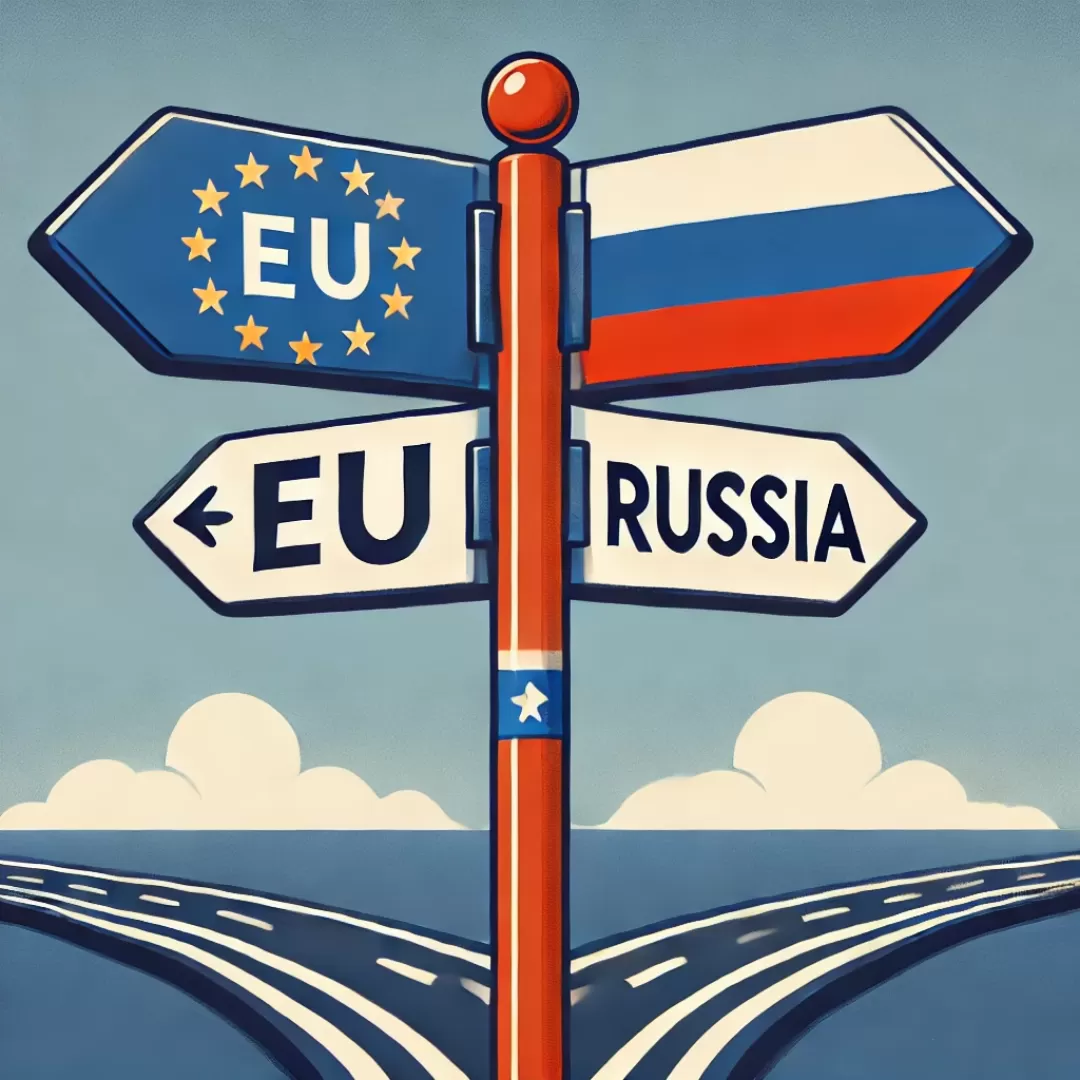
Georgia at a Crossroads: EU Criticizes Government, Russia Backs Georgian Dream

On October 17, 2024, the European Union and Russia issued new statements on the situation in Georgia, highlighting their opposing views on the country’s future development.
EU’s Stance: Calls for Reforms and Criticism of the Government
During the first day of the summit in Brussels, the European Council reiterated its commitment to supporting the Georgian people on their path to European integration but voiced serious concerns about the actions of the Georgian government. The EU criticized the adoption of the so-called “Law of Agents,” anti-Western rhetoric, and suspended Georgia’s accession process, including halting financial aid.
The Council urged Georgia to implement democratic reforms and ensure free and fair parliamentary elections. It also emphasized the need to protect free and independent media. The EU reaffirmed its support for Georgia’s sovereignty and territorial integrity, expecting the elections to meet international standards. In addition, the Council expressed hope for a peaceful resolution of conflicts in the separatist regions of Abkhazia and South Ossetia.
Russia’s Position: Support for Georgian Dream and Criticism of the West
On the same day, Russian Foreign Ministry spokesperson Maria Zakharova reiterated Moscow’s support for Georgia’s ruling party, Georgian Dream, praising its stance on the so-called “second front” against Russia, referring to Georgia’s refusal to be drawn into the Ukraine conflict.
Zakharova accused the West of attempting to involve Georgia in “dangerous adventures” and stated that Russia is ready to help normalize Georgia’s relations with the separatist regions of Abkhazia and South Ossetia. She argued that Georgian citizens are increasingly aware that the West, under the guise of promoting democracy and freedom, is pursuing its own interests at the expense of Georgia’s stability.
These statements underscore the deep geopolitical divide in Georgia’s future direction. On one side, opposition forces advocate for a return to the European path, accusing the government of steering towards a pro-Russian policy. On the other, Russia continues to back the current Georgian leadership, offering its own solutions to regional conflicts while criticizing Western influence.
As a result, Georgia finds itself at a crossroads. The outcome of the upcoming parliamentary elections may determine whether the country strengthens its European ties or deepens its relationship with Russia.
See Also


Simonyan: “Armenia Should Trade with Turkey and Azerbaijan Instead of Closing Borders”

Mirzoyan Meets US Deputy Assistant Secretary Joshua Huck

Azerbaijani President Holds Talks with UAE and German Business Delegations on Economic Cooperation

Grigoryan Confirms Armenia’s Readiness to Dissolve OSCE Minsk Group Upon Peace Treaty Signing

